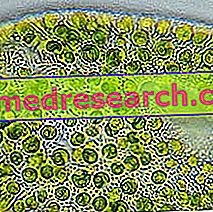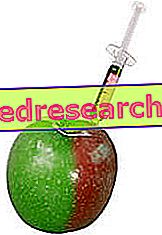
Scientific name
Chlorella
Family
ClorococcaliChemical constituents
- 55% protein;
- 20% glucides;
- Lipids 15%;
- Vitamins (group A, B, C, E, biotin, niacin, phylloquinone);
- Amino acids (leucine, isoleucine, lysine, phenylalanine, tyrosine);
- Clorelline (product with antibiotic activity).
Chlorella in Herbal Medicine: Properties of Chlorella seaweed
Chlorella is a green alga that grows wild in the brackish waters of equatorial Africa.
It is rich in nutrients and for this reason the Ministry of Health recognizes the physiological action of "Antioxidant, useful for supporting the body's natural defenses and purifying functions".
Biological activity
As mentioned, chlorella is an alga that contains a wide variety of nutrients and is well tolerated by humans.
Because of its rich composition, therefore, chlorella is used as a food supplement with antioxidant and restorative properties, but not only. In fact, this alga seems to be useful also in the prevention and treatment of diabetes and metabolic disorders, and it seems to be a valid aid also in the treatment of other types of disorders, such as rheumatism, hair loss, dermatitis, psoriasis, constipation and liver disease.
Furthermore, the chlorella also has antibacterial properties mainly attributable to the chlorella contained in it.
Pharmacological Interactions
Prolonged intake of alginates can reduce the absorption of iron and other minerals in the intestine.
Also for Chlorella we point out potential risks of hepato-toxicity deriving from contamination with microcystins, widely analyzed in the article on klamath algae.



